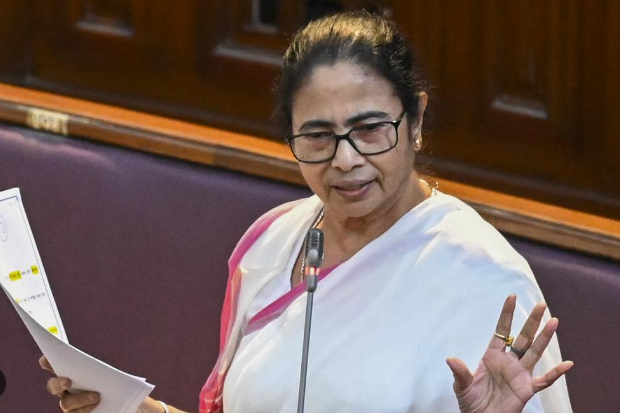
The Governor’s Allusion To The President And The WB Aparajita Women & Child Bill: Expounded
Last Updated on September 11, 2024 by Administrator
The Aparajita Women and Child (West Bengal Criminal Laws Amendment) Bill, 2024 was reserved by West Bengal Governor C.V. Ananda Bose for consideration by President of India Droupadi Murmu on September 6.
It is alleged that the State government requested a technical assessment prior to forwarding the Bill to the President. Raj Bhavan mentioned the omissions and commission in the hastily approved Bill in a statement on X, which was formerly Twitter. “Don’t act in haste and repent at leisure,” he cautioned the government.
The Bill’s Statement and Goal reads as follows: “to amend the Bharatiya Nyaya Sanhita, 2023, the Bharatiya Nagarik Suraksha Sanhita, 2023 and the Protection of Children from Sexual Offences, Act, 2012, in their application to the State of West Bengal to enhance punishment and to constitute the framework for, inter alia, expeditious investigation and trial of the heinous act of violence against women and children.”
On September 6, the West Bengal Legislative Assembly passed it unanimously by voice vote, with full backing from the opposition.
In the midst of the controversy surrounding the alleged rape and murder of a doctor at R.G. Kar Medical College and Hospital in Kolkata, the State’s Law Minister Moloy Ghatak introduced the legislation. The Supreme Court later granted suo moto cognizance of the case.
Regarding Bill
It suggests instituting life in jail, which might involve either light or severe confinement.
According to Section 64(1)(b) of the BNS, the maximum penalty for rape would be the death penalty, while the minimum punishment would be harsh imprisonment for life. It is suggested to add a proviso to Section 64(1), which states that the fine imposed must be just and reasonable to cover the victim’s rehabilitation costs and medical costs.
Likewise, the life sentence for other sexual offenses has been replaced with either the death penalty or a harsh life sentence.
It should be recalled that the death sentence for the crime of rape was emphatically rejected by the 2013 J.S. Verma Committee on Major Criminal Reforms.
Additionally, it is suggested to add a chapter on Special Courts that are meant to expedite the conclusion of an investigation or trial for “Specified Offenses,” which are defined as BNS Sections 64, 66, 68, 70(1), 71, 72, 73, and 124.
The Bill suggests completing the inquiry under Section 193 (police officer report on completion of investigation) of the BNSS in 21 days as opposed to the two months stated in the provision. An additional fifteen days may be added to the investigation’s time frame.
What takes place at this point?
A bill is delivered to the governor after it has been approved by both houses of the legislature, or the Legislative Assembly in the event of a state with a Legislative Council.
Article 200 gives the Governor three choices. He can either approve the bill or not, or he can reserve his approval for the President to review. In this instance, the President shall either express his assent or withhold it in accordance with Article 201 if the Governor chooses to reserve the Bill for the President’s consideration.
If the bill is not a money bill and the president chooses not to sign it, he may instruct the governor to send the bill back to the legislature along with a request asking the House to rethink the bill or any particular provisions or to think about whether an amendment would be appropriate. Following such a message, the Legislature must take the Bill up for consideration within six months. The Bill will be re-presented to the President for his approval if the Legislature adopts it again, amended or not.
Why is the President’s consent required?
The President will now have to determine if the Bill satisfies Article 254 of the Indian Constitution before granting her approval.
According to Article 254(2), the State Law—if it is reserved for the President’s reconsideration and has his assent—shall take precedence if a State Legislature-made law concerning a matter on a Concurrent List contains any provisions that are incompatible with those of a Parliament-made law or an existing law. This won’t stop the Parliament from passing legislation on the same subject, though, including revising, changing, or abolishing the state legislature’s original legislation.
The doctrine of repugnance, which is covered in Article 254, states that a statute is considered objectionable if it contains provisions that contradict one another while covering the same subject area as another statute.
For example, the maximum life sentence stipulated by the BNS for the crime of rape is applicable, unless the victim is a lady under the age of twelve. In the latter instance, the penalty is capital. Nonetheless, the Bill aims to impose and modify the death penalty for rape offenses.
Schedule VII, Concurrent List, Entry I and II, respectively, deal with criminal cases covered by the Code of Criminal Procedure and the Indian Penal Code. Thus, it could be the subject of legislation from the Union and the States.
In the 1959 case of Deep Chand v. The State of Uttar Pradesh, the Supreme Court established the following criteria for repugnance:
- Did the two pieces of legislation directly contradict with one another?
- If Parliament intended to replace the State Legislature Act with a comprehensive code pertaining to the subject issue; and
- Did the two laws cover the same territory?
The Union Parliament is the body that enacts the criminal legislation (IPC, CrPC, and Evidence Act), according to a prima facie analysis. These criminal laws were superseded by the Bharatiya Sakshya Adhiniyam, BNS, and BNSS, which became operative on July 1, 2024, thanks to the Parliament. The President’s approval is required for the Aparajita Bill to take effect because it deviates from the BNS, BNSS, and POCSO Act’s provisions.




